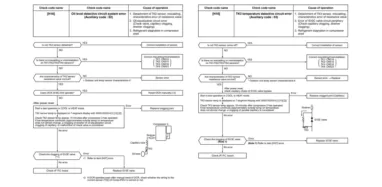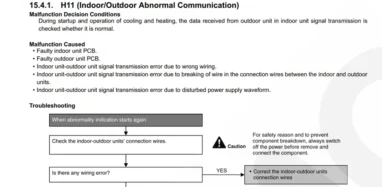With seasonal changes comes a corresponding varying level of indoor space temperature and equally decisive responses by homeowners to control the possible effect of prevailing weather conditions. Usually, most homeowners will settle for either a heat pump or air conditioner, but in recent times, a heat pump is becoming popular since they are more cost and energy efficient.
However, compared to air conditioners, the weather to some degree determines the efficiency of heat pumps: they perform better under warm conditions. This has resulted in people asking some interesting questions like, do heat pumps work better in the shade? Does a heat pump need to be in the sunlight? If you also seek answers to these questions, look no further than this article.
Do the heat pumps work better in the shade?
Yes, heat pumps work better in the shade. No doubt, a heat pump will make a better option in a warm climate, but it is ill-advised to expose them to direct sunlight. This is because for the heat pump to cool indoor spaces during hot summer, it draws heat from outdoor air and pumps them inside.
However, the warmer the air around the compressor, the lesser the cooling effect of your heat pump and the higher they consume energy. Shading your heat pump will sure help you avoid such an undesirable situation.
Do heat pumps work well in hot weather?
Yes, heat pumps work well in hot weather. Heat pumps work more efficiently to heat a house better in hot weather since there will be enough heat in the air to be absorbed and used to heat the building.
What is the best location for a heat pump?
For efficiency, the best place to locate your heat pump is the warmest location. Preferably on a north-facing wall. In general, heat pumps will work more efficiently when the differences between indoor and outdoor temperatures are minimal.
With that said, another factor to consider when installing your heat pump is accessibility during repair and maintenance. It should be placed where it can be easily accessed. The best location, in this case, will be on the ground behind a property.
At what outside temperature does a beat pump become ineffective?
A heat pump operates best when working under temperature levels above 40°f. At any temperature below 40° or 25°, heat pumps gradually lose efficiency and consume more energy.
Should I put a roof over my heat pump?
Yes, you can put a roof on your heat pump. Putting a roof on your heat pump will protect them from direct sunlight, especially during cooling seasons, and will also protect them from rain, snow, leaves, or twigs. Having said that, under no circumstances should you stack items in your heat pump in the name of protection; such an attempt will affect the performance of your heating appliance.
Should you cover a heat pump in the winter?
No, you don’t have to cover your heat pump during winter. Heat pumps are designed to automatically defrost periodically during the winter and fall seasons. This means frosts or snow can only linger on them for only a few minutes or hours. You may end up damaging more than good when you try to cover your heating device during winter: Melted ice and snow will not drain away, causing them to freeze around the component.
How to make my heat pump work better
- Check the heat pump filter monthly during winter and summer when they work the most.
- Change the filter if it looks dirty. A dirty filter may reduce the flow of air, causing the system to be using more than the required energy.
- Check the ductwork for possible leakages in the attic, crawl space, or basement.
- It is best to service the heat pump at least once a year, and this should be done by a professional who will check the charge of the heat pump and also check for parts that may require replacement.
- Ensure the outdoor component of the heat pump is placed where it will be protected from the excess wind.
- Make use of the programmable thermostat. This will allow easy control of the temperature level for a particular time of the day or night, thereby saving the cost of energy.
Do heat pumps work in high humidity?
Yes, a heat pump work in high humidity but at reduced performance and increased energy consumption. When there’s high humidity, it only means one thing, lots of moisture is passing through your unit. And when this happens, your heating pump will struggle to heat the air in your room.
Do window heat pumps work?
Yes, the window heat pump work. Window heat pumps are not only effective at cooling and heating indoor spaces, but they are also very efficient: they have minimal heating or cooling wastages.
A most efficient way to use a heat pump during summer
When it comes to heat pumps, switching between different temperature levels is not a good idea in any season. During summer, it is best to steady the temperature level at 20° during the day and about 22° at night. This will ensure that your device always works at an optimal level.
Is it best to leave the heat pump on all day?
No, it is not advisable to leave your heat pump on all day. If you are indoors and you require some heat, you can leave it on as long as you are using it. However, when the room is unoccupied, you shouldn’t leave it on at all, not even for a prolonged period. Leaving it on will lead to increased energy consumption.


